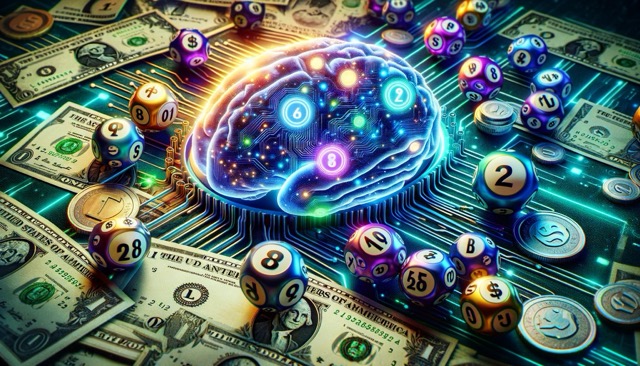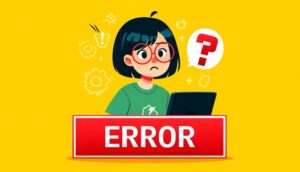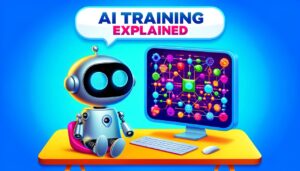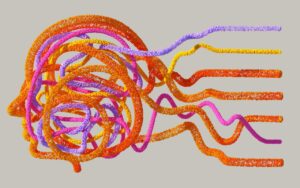Introduction
The world of probability, randomness, and artificial intelligence. With the advent of super-intelligent AI, the incredible strength of AI to crack the most difficult patterns across a plethora of different domains is inciting interest in turning that strength onto the often erratic world of lottery numbers.
This goes further than the technical capabilities and delves into how AI is brought into randomness issues in lottery draws and what is revealed from it regarding the potential and limitations of technology. That opens a window onto the tantalizing juncture of sophisticated computation, human desires to predict what is—in definition—unpredictable, and the enduring allure of one of the oldest forms of gaming.
Understanding AI and Its Capabilities in Predictive Analysis
Its influence on the transformation of problem-solving stretches to predictive analysis, which shows enormous influence to be able to acquire meaningful patterns from enormous and complex data sets. Its applications are numerous, from language processing to dynamic market analysis, showing maturity in AI applied to solve various tasks that require subtlety and understanding for prediction. The attractiveness of trying AI in lottery number prediction lies in the fact that patterns can be sought, and the conclusion predicted with more or less success.
The random, purely chance-driven nature of the draws in a lottery still represents something unique and a very serious challenge to AI in testing its predictive power in a situation where historical data may not at all point to patterns about which anything can be usefully done.
Machine Learning Models: How They Predict Outcomes
The machine learning models underpin the predictive aptitude in AI since they process historical data to bring out hidden trends and, therefore, predict future trends. Their complexity ranges from simple algorithms to models of quite sophisticated, multilayer neural networks that are capable of deep learning, where each type exhibits strengths in different kinds of prediction tasks.
Their relative success in fields such as financial forecasting and climatology goes on to prove how good the chaos theory is in predicting patterns and trends. But their application in predicting lottery numbers would be relatively lighthearted. Due to the nature of the draws in a lottery, a real challenge is posed against those models in this very peculiar field to impose a real challenge.
The Role of Probability and Randomness in Lotteries
In this light, therefore, the son guiding principle in all lotteries should be based on randomness, and every draw made independent of any influence past draws had on them. It is this intrinsic uncertainty—an inbuilt and fundamental part of the unpredictability—which makes lotteries a classical example of how a random process challenges predictability at its core. Probability theory was supposed to be the mathematical bedrock that underpins such systems, and it would point to the clear suggestion that certain outcomes are intrinsically hard to predict. This introduces some randomness to AI, which, aside from the coin flip and a few others introduced to it, is designed to operate from patterns recognized through historical data. This showcases the limitations of AI in terms of designs that make it effective in inherently random systems.
Case Studies: Attempts to Use AI in Lottery Predictions
Over the years, different efforts have been made in the use of AI for lottery predictions, exploring various methodologies with different results at every instance. From statistical analysis and machine learning algorithms applied to find the potential patterns in the historical lottery data, to more experimental types of efforts that try to exploit perceived vulnerabilities that exist within the lottery drawing process. If these may reflect efforts, on the one hand, into the potential and inventiveness of AI in the field of data analysis and pattern recognition, they may also highlight, if not on the other hand, the enormous challenge posed by the unpredictable nature of lottery numbers.
Unwavering accuracy in the prediction of lottery numbers with advancement in AI has, however, remained elusive, therefore further showcasing the huge gap that currently exists between AI and the random nature of lottery draws.
Exploring the Mathematical Complexity of Lottery Predictions
So, the task of lottery numbers prediction with AI intersects deeply into mathematical concepts, particularly combinatorics and probability theory. All these fields give the basis framework for understanding the odds and nature of random events, as those of lottery drawings. However, lottery mathematics provides details that would expose some of the intimidating complexities and vast scales that any predictive model—AI included—would try to restrain. One then wonders why, with such advances in technology and analytics, the ability to accurately predict the winning lottery number would still be such a drastically ambitious goal, so often thrown out by the sheer randomness and incredibly high odds the games carry.
Combinatorics and Probability in Lottery Numbers
Much attention in the scope of predictions is on combinatorics and probability theory. They show the very huge number of possible combinations of numbers that the participants in a lottery are supposed to play, and probability helps them to find the chances of occurrence of the drawn combination.
That becomes even clearer if one takes into consideration that in a game of, for instance, Powerball or Mega Millions, the combinations actually run into the millions. Basically, AI algorithms may be amazing in processing and analyzing humongous data sets, but the very base of lotteries is purely probabilistic, where each combination is just as possible to be picked by random chance. This certainly is a big challenge even for AI, which mostly bases itself much more on recognizing patterns and trends, rather than moving inside pure randomness.
Statistical Analysis of Historical Lottery Data
One of the most common AI approaches used in the prediction of lottery numbers is a very detailed statistical analysis based on the past data of a lottery.
The purpose is to investigate any repetitive patterns of oddities or trends that may recur from one draw to another, which may point toward the predictability of future draws. However, a larger question is posed by the design of the draw in lotteries, which claims each draw is perfectly independent and random. Past results do not determine or have a say in future draws, so most of the statistical analysis becomes irrelevant to make a prediction. This contrasts with the success of AI in other areas insofar as patterns of historical data do usually provide the key insights for future predictions. It demonstrated the unique challenge presented by the random nature of lottery draws.
The Psychology Behind the Fascination with Lottery Predictions
Now, curiosity makes readers interested in using artificial intelligence to predict the lottery numbers that drive even touch on the dry psychological motivations. It appeals to our natural, inborn wish to decode the undecipherable, to make order out of randomness, and to impose control over events largely regulated by chance. This would ensure a psychological dimension and further insight into why the idea of using AI to predict the lottery is so alluring and persistent, despite those grimace odds and randomness being the definition of lotteries. It shows the inclination of human optimism and the continuous belief in technology’s power to solve even what seems to be an insurmountable problem.
The Lure of Quick Riches and the Appeal of Predictive Technologies
A dream come true of winning a lottery that represents a very sudden, drastic shift or change in life, combined with the progress and promises of AI, can only heighten curiosity. Crossing the allure of sudden wealth with the appeal of state-of-the-art technology, it makes a very compelling tale. But this is the crossroads of broad human yearning for quick and easy answers to difficult questions, with faith in technology as the lever to turn to unlock the secrets of chance. It shows the attractive power of the possibility of being able to Predict the lottery numbers with AI: it’s a chase that dabbles the lure of getting rich with mystique linked to very complex computation.
Cognitive Biases and Pattern Recognition
This really underpins the fascination with continued AI-assisted lottery predictions. Thus, human cognitive biases will lead to the innate tendency of pattern recognition, even in random data, driving the capability belief in AI to understand hidden sequences of lottery draws. It is a psychological characteristic, predominant in most people, giving them the tendency to misinterpret the random non-eventful occurrence if it does contain some kind of recognizable pattern, which fuels most of the persistence behind AI-based strategies in predicting the lottery. This is supported by a call for predictability and order in a system that has randomness. This is proved by our reflection of making something out of coincidences, going ahead to call for the exploration of AI in the domain of lottery predictions.
Enhancing AI's Predictive Accuracy: Future Prospects
But this is a field where AI is likely to cause the greatest difficulties; as AI technology continues to progress, the question of how predictive its future can be in a complex system such as lotteries will remain a highly interesting and speculative subject. This essay seeks to explain how artificial intelligence, with its developing abilities, may be thought to offer potential applications in dealing with the challenges that emanate from lottery predictions. AI algorithms and new ways of data processing that further improve prediction models may very well be on their way. But if such advancement could eventually transcend the intrinsic randomness characteristic of a lottery draw is still another question.
Developing the role of AI in these contexts considers both ways of improving predictions and grappling with the limits of the technology in the face of fundamentally unpredictable systems.
Innovations in AI and Predictive Analytics
The AI innovations, especially through deep learning and advanced analytics, really cross the limits of what might have been likely with predictive modeling. These evolutions lead to more sophisticated algorithms and even empowered handling of increasingly complex data sets, which unveil delicate patterns and insights that were once invisible.
In the light of lottery predictions, such technological advances may accompany the beam of new hope toward effective strategies in predictions through new methods of data analysis for drawing data. But the core of random numbers for the lottery—such an insurmountable challenge, no matter how smart technologies AI.
The Broader Implications of AI in Predictive Tasks
The travel in probing AI capabilities to predict lottery numbers goes much further than the relatively small problem that the draw of the lottery represents. It calls into existence wider considerations on what impact AI development has within several diverse disciplines to which prediction lies at the center. Right from the field of healthcare and finance, the methodologies and technologies devised in the perspective of lottery predictions would probably bear upon AI applications for prediction aims in other areas such as environmental science and whatnot. The value of this research, therefore, could really be paradigm-changing: it might open new applications of AI for complex problem-solving in a very wide list of domains.
Final Thoughts
This comprehensive study helps to know whether AI can actually predict the winning lottery numbers, technological capability, mathematical challenges, psychological factors, and future opportunities concerning AI. On the one hand, AI has greatly influenced most sectors with its predictability; on the other hand, its effective power on accurate predictions of lottery numbers still somehow remains little. Obviously, because the game involves randomness. The AI development for lottery prediction fits into the larger human effort narrative: our obsessive need to understand and control chance. It would be yet another example of how humans are always seeking ways to use technology to unlock the secrets of randomness or chance. In a word, both exploring and applying AI to predict the lottery numbers seem pretty much like a mission impossible. If AI technology kept on being developed, it could bring possibilities on a platter and bring forth ways completely unknown to this classic problem. The AI has to, for now, live with the irony that its winning predictions are going against the imposed odds and the chances by the technology states. This odyssey, however, bears witness to human creativity in an inexorable quest to understand the unpredictable and thus projects into the future possibilities and limitations of artificial intelligence facing the random and the uncertain.





